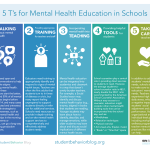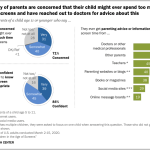Table of contents
Importance of Knowing How to Cope with Stress in Kids
It is important for parents to understand and manage the stress that their children may be experiencing. Stress can have a negative effect on children’s physical, emotional and mental development. Research has suggested that too much stress during childhood can lead to difficulty concentrating, changes in sleeping and eating habits, irritability, and even physical illness. Knowing how to cope with stress in kids and what causes it will help parents provide support and nurturing to their children.
Signs of Stress in Kids
Kids can often be better at hiding their intense emotions under an “I’m fine” front, rather than sharing how they really feel. It can be hard for parents to tell when their child is under too much stress, but some of the signs to look out for include:
- Anger or emotional outbursts
- Mood swings
- Apathy or loss of energy
- Sleeping problems
- Isolation
- Anxiety, worry or nervousness
- Regression to younger behaviors or emotions
Understanding Child Stress
It’s important for parents to take time to understand why their child might be dealing with stress. Many of the stressful events in a child’s life may have grown-up causes, such as a parent going through a divorce, money issues, health concerns or job loss. It’s also important to recognize that traumatic experiences like bullying or a parent being deployed in the military can naturally cause stress.
Kids can be stressed by more everyday events in their lives such as difficulty at school, changes in family dynamics due to a new baby or job, or even a break-up with a best friend. In addition, children can be affected by the expectations we place on them – from academic performance, to meeting the expectations of teachers and coaches.
How to Manage Stress in Kids
Now that you understand why your child may be feeling stressed, there are a few basic steps parents can take to help them cope:
- Talk to them. Give your children the opportunity to tell you what is stressing them out, and provide a safe, non-judgmental space to help them express their feelings.
- Listen. Making sure that your children share their fears, worries and values will give you a better understanding of where they are coming from.
- Provide comfort. Let your children know they are safe and secure, and that you will always be there to listen, no matter how big or small the problem.
- Offer reassurance. Sometimes children just need to be reminded that whatever is causing them stress will soon pass and that it too shall come to an end.
- Encourage healthy habits. Stress can be relieved through physical outlets, such as exercise, and mental outlets like reading, arts and crafts. Teach your children to recognize their own emotions.
- Cut back on activities. Ease the burden of stress by reducing the number of after-school activities your child participates in and ensure they get adequate rest and nutrition.
- Be a role model. How you deal with stressful situations will have the biggest impact on how your children handle them. Show them how to remain calm during trying times, and if you are feeling overwhelmed, seek help from a professional.
At the end of the day, parenting is a the toughest job in the world, especially when it comes to understanding and managing stress in children. Education is the key to understanding how to cope with stress and how best to help your children through difficult or anxious times. Remember, children learn by example and all stress is manageable, with the right guidance and support, so don’t ever let stress stand in the way of raising your happy, healthy and resilient children.







